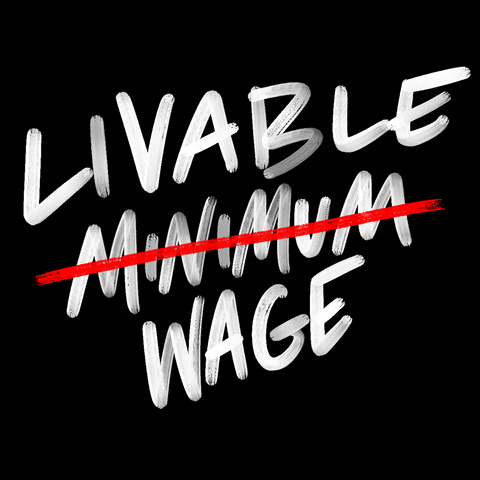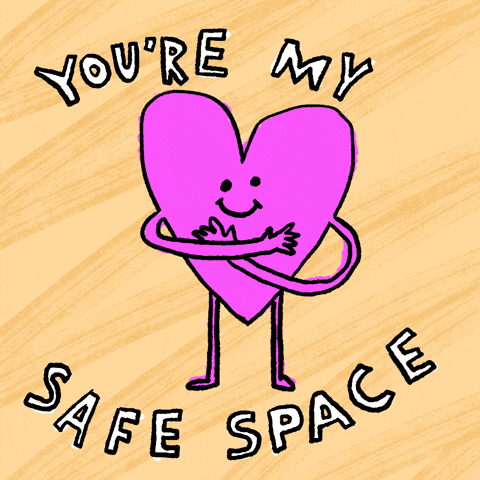The media taught us, through "stranger danger," through horror films in the 80s, through "true crime" documentaries, to be on the constant lookout for psychopaths and sociopaths.
While dangerous personality disorders, it's not impossible that a psychopath or sociopath may blend into the crowd without drawing much attention to themselves because working in society--to them--is a set of rules and tactics to fit in. Whereas neuro-typical folks act without much thought, psychopaths and sociopaths carefully calculate every action and consequence.
u/haloarh asked:
"What's the easiest way to spot a sociopath or psychopath?"
Here were some of those answers.
They're Among You
The real clever ones are your friends and community leaders already.
They aren't stupid, they're not incapable of reading emotion. They're not gonna get caught out by some stupid "gotcha" questions.
There is no overall easy way to spot them. Life isn't a video game.
A Multitude Of Persons In One
Initially they can make you feel proud, but eventually you feel anger, shame, or fear - as a result of their gaslighting - when you are near them. These are feelings that they project on to you, because they don't have a functioning emotional system to deal with them. They are not your feelings. They have simply been 'delegated' to you.
Extremely selfish but charming. Initially very charming, curious, and they overshare personal information to loosen you up and much later take advantage from knowing details about you. Combative behavior when under 'stress', but typically no display of fear. Treats others as 'lesser beings', for example by addressing them in some diminutive form. No display of shame or excessive display of shame (burning cheeks). Excessively selfish behavior. Easily 'bruised' and responds to perceived slights with revenge.
"Saviour" syndrome. They "help" you in some "grand" way and you suddenly owe them a favor of some sort, where you are at a disadvantage and repaying the favor is not in proportion to the initial help, but they put you in a bind of some sort, like "selling your soul".
Success
Many sociopaths are profoundly charming and successful human beings.
It's really not the people with "cold eyes or weird looks" who are sociopaths, sociopaths learn how to present themselves as an ideal version of a human being. On the contrary, it's not people who seem weird or dark or moody you need to be cautious around, it's the people who appear perfect like they have everything figured out.
Those are the cult leaders, or the extraordinarily successful people in our society who are secretly sociopaths, they often hold positions of great prestige, they know exactly what to say to put you at ease and make you feel comfortable, and they are the people who would gladly bury you in the desert if they knew they could get away with it and it would benefit them somehow to do so.
Boundaries Bye-Bye
They violate boundaries or become incredibly upset/angry/sad/whatever when you maintain your boundary.
Knowing your boundaries, setting them, and maintaining them are key skills I work with clients on in therapy. Especially clients who are uneasy about relationships due to a history of poor relationships.
This strategy isn't fool proof but it helps in pinpointing toxic people. First is to know your boundary, then you set it (tell the person the boundary), then you maintain (don't break it) and see how they handle it.
I will give you an example. Say spending time alone with your children each weekend is really important. So you start dating someone new and you tell them this. "Every weekend that I have my kids, I make sure that I spend X amount of time, just me and them. During this time, it means I won't be texting or having any visitors over, etc. Are you ok with this?"
Most people say "yes I am good with this"
Alone time with the kids comes and the new date keeps texting you, or drops by with a coffee, or offers to take you all out for supper. They try to weasel in. When you assert and maintain your boundary by 1) not texting back because you told them you wouldn't ahead of time or 2) declining the coffee and turning them away at the door, this is when their true colors can come out.
Most people will be a little hurt/embarrassed/whatever at the perceived rejection and that is ok. A healthy person will discuss the matter reasonably once the kids are gone.
A not so great person might get angry, might "punish you" by icing you out, be dramatic and make accusations, engage in attention seeking behavior, call you mean, etc. These are GIANT red flags. All of that is trying to manipulate you into thinking you were wrong for communicating clearly what was important to you and what it would look like.
See these flags and cut and run. If the person wanted to change, they likely would. I am very in support of ghosting at early stages of dating with this type of behavior because explaining your reasoning just gives the person more fuel to try to manipulate you into sticking with them.
Early Flags
As someone who has cared for numerous people with professionally-diagnosed psychopathy during my time working on a locked psychiatric ward, I would strongly advise you to look at how they handle power, choice, and influence.
I see that the Macdonald triad has been referenced, but this is a poor diagnostic tool, as few adults would candidly admit to bed-wetting, fire-starting, or animal torture. Rather, they would be able to effortlessly conceal these early red flags.
As I understand it, antisocial personality disorder and its variants occur when an individual acts radically in favor of their own interests, to the detriment of the good of the group (i.e., society). This could be a bank robber who doesn't care how many people he needs to mow down in his escape, or a banker who doesn't care how many lives and fortunes are ruined as a result of a shady transaction--nothing matters except the perceived interest of the individual.
Seeing how the individual uses power, choice, and influence--whether to increase, or at least acknowledge, the common good... or not--can be the best indicator of a person's tendency toward this disorder.
Usefulness Worn
They spend a lot of time and energy managing other people's perceptions of them rather than building meaningful relationships. They may burn through relationships, friendships or business acquaintances quickly when those people either question their behavior or no longer provide attention, money, status, sex or labor. People are not human beings to them, but a means to an end. Charm, use, discard, and repeat.
Look Through The Eyes
I work in forensics psychiatry, deal with many psychopaths and some sociopaths.
I work with a forensic psychiatrist who does most high profile psychopath assessments in Canada.
I asked him this question, how can I spot a psychopath? He says just look at them in the eyes, if you feel like you are looking through them then that might be your answer right there. I mean he doesn't use this technique on his assessments, but I thought it was kinda interesting compared to your usual triad of psychopath behaviours.
For example if you look at Derek Chauvin in that video, you might see what I'm talking about.
Schadenfreude
They find humor and joy in others misfortune or pain.
Sometimes it's simply not that easy to spot. Some are very good at hiding it and you only know once you have gotten to know them.
Empathy Gone
Psychopaths will mirror your body language to make you feel more comfortable and let your guard down. That is a dead giveaway. They also typically have a low resting heat rate. Also some studies claim that psychopaths blink significantly less than the average person, and don't yawn when you yawn in front of them. Supposedly this has to do with empathy which is why humans commonly yawn when they see or hear others do it, but psychopaths who lack empathy by nature /definition do not yawn when they see or hear this.
Sociopaths are antisocial by nature and tend to distance themselves from others. They typically come off as angry or strange which further isolated them from society.
A lot of pop culture mixes up these two terms or uses them interchangeably when they are actually pretty different behaviorally!
No Process
In a YouTube video, a psychiatrist said a tell-tale sign is asking the person, in relation to anything personal about themselves, "How does that make you feel?" or "Tell me how you feel about that."
Sociopaths/psychopaths will instantly bristle and become visibly uncomfortable. They don't process their emotions so a question that involves self-examination will send them running for the hills, according to this doctor.
She says she uses the line at parties. lol








 @thepassingtramp/X
@thepassingtramp/X @BryceWayne10s/X
@BryceWayne10s/X






 @PressSec/X
@PressSec/X















